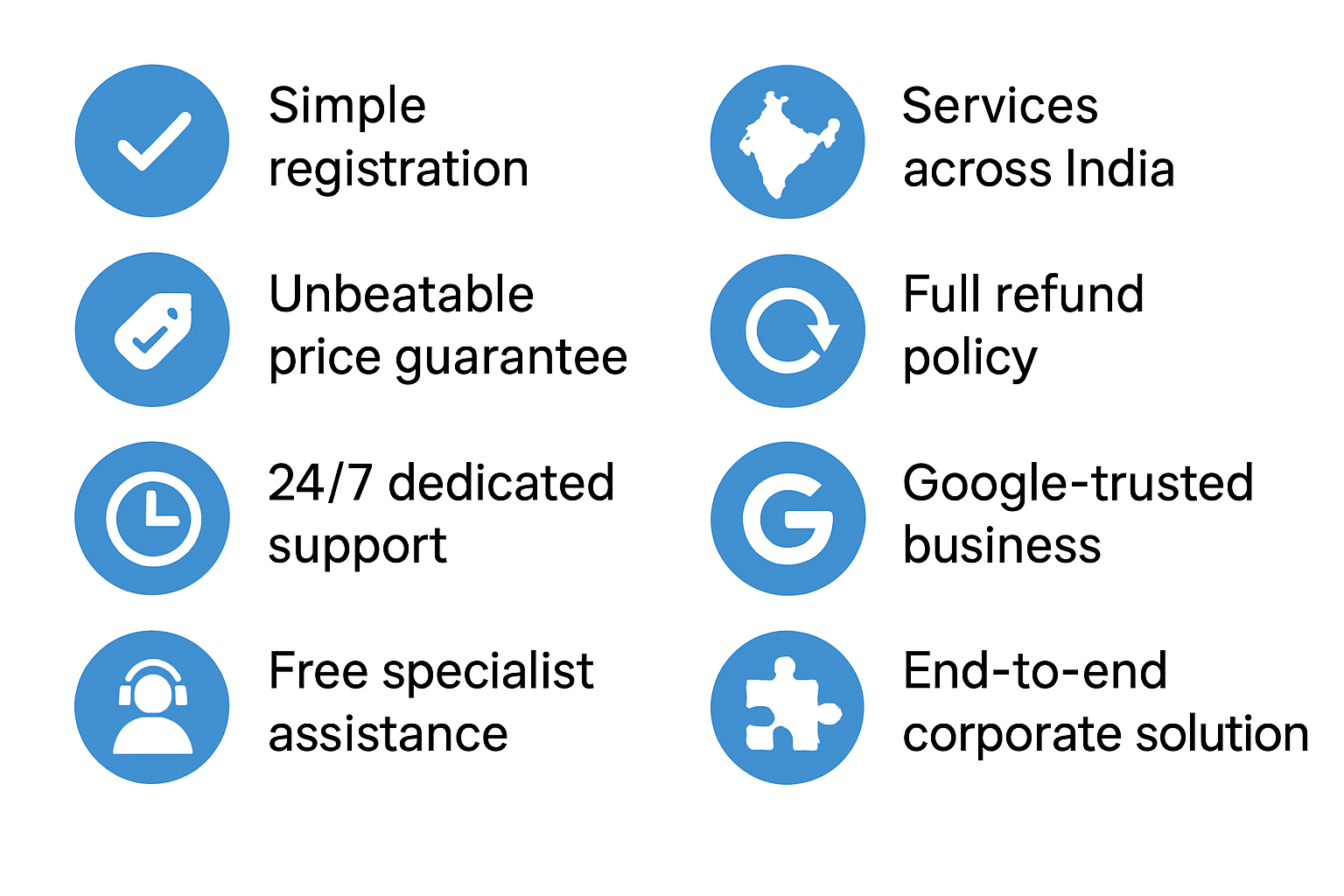Understanding the Indo-European Free Trade Agreement (INDO-EFTA)
The European Free Trade Association (EFTA) is composed of Iceland, Liechtenstein, Norway, and Switzerland. Its main goal is to enhance free trade and economic cooperation among its members and strengthen their integration into the wider European Single Market.
After 15 years of negotiations, India and EFTA successfully concluded a comprehensive Free Trade Agreement (FTA).
The India-EFTA FTA covers a broad spectrum of sectors including industrial products, agricultural goods, and intellectual property rights.
The agreement aims to remove or reduce tariffs and eliminate trade barriers, fostering smoother cross-border trade of goods and services between India and EFTA countries.
For Indian exporters, the FTA opens up premium European markets, offering preferential access and potentially increasing export opportunities.
Indian businesses will benefit from reduced costs of trade due to lower tariffs, enabling more competitive pricing and better market reach.
Consumers in India can expect lower prices on imports from EFTA countries, increasing their purchasing power and access to diverse products.
The India-EFTA FTA represents a significant advancement in trade relations, projected to stimulate trade and investment, create employment, and enhance mutual economic prosperity.
The agreement underscores the shared commitment between India and EFTA member states toward open trade and economic collaboration.
Explaining the Concept of India-EFTA Trade Registration
The EFTA registration refers to the certificate of origin required for goods and services traded under the Free Trade Agreement between India and the four European countries of the European Free Trade Association (EFTA)—Iceland, Liechtenstein, Norway, and Switzerland. After 15 years of negotiations, India signed this historic agreement to help level the playing field for Indian exporters in these affluent European markets.
Under this agreement, Indian exporters or merchants trading with EFTA countries must present a certificate of origin to customs authorities. This certificate verifies that the goods originate from India and are eligible for preferential tariff treatment under the Indo-EFTA pact, thus enabling exporters to fully benefit from reduced tariffs and trade barriers.
The certificate acts as proof that the products meet the rules of origin criteria outlined in the agreement and must be issued by authorized agencies or through a self-declaration system by the exporter. Presentation of this certificate is mandatory at the time of customs clearance to avail the advantages of India-EFTA trade.
Guidelines for Product Origin
The Rules of Origin define the criteria used to establish the country where a product is produced or sufficiently transformed to qualify under preferential trade agreements. These rules are agreed upon by the countries involved in the trade pact and form the basis for deciding if a product is eligible for tariff concessions.
Purpose: The Rules of Origin ensure transparent and fair trade practices by preventing misuse or fraudulent claims related to product origin, safeguarding the benefits of the trade agreement for the signatories.
Wholly Obtained Products: Products that are completely obtained or produced in the exporting country without any foreign materials or components qualify directly.
Value-Added Criteria: Products that undergo sufficient manufacturing or processing in the exporting country, adding value beyond a certain threshold, meet the criteria.
Changes in Harmonized System (HS) Codes: Transformation of products resulting in a change of tariff classification codes under the HS nomenclature often indicates sufficient manufacturing for origin compliance.
Manufacturing/Production Location: The final substantial production or assembly of the product must take place within the exporting country to qualify under the agreement.
Compliance and Documentation: Exporters must declare detailed product specifications and manufacturing processes to customs authorities to claim preferential treatment under the agreement.
Product-Specific Rules (PSR): Each product category may have specific rules detailing the extent of processing needed for origin qualification.
Document of Product Origin
Proof of origin refers to the necessary documentation or evidence used to establish the country where a product or goods were manufactured or sufficiently processed. This is a crucial element in international trade to verify the origin of products for customs clearance and preferential tariff benefits.
Exporters can provide proof of origin through any of the following means:
Digital Certificates: Issued electronically by authorized government agencies or designated bodies, offering a secure and verifiable certification of origin.
Paper Certificates of Origin: Physical or scanned copies of the certificate issued under Indo-EFTA regulations by relevant government authorities, confirming the originating status of the product.
Self-Declaration by Licensed Exporters: A certificate or declaration provided by exporters authorized under Indo-EFTA rules, affirming the origin of the goods in accordance with established regulations.
Mandatory documents for EFTA certificate of origin
Completed application form with accurate details
Detailed product description
Digital Signature Certificate (DSC) of the authorized signatory
Valid mobile number and email address for communication
Updated Import Export Code (IEC) of the exporter
Purchase order from the importing company
Organization-based Digital Signature Certificate (ODSC) for secure online filing
Manufacturer/Exporter declaration on official company letterhead
Purchase bills showing quantity, origin of raw materials, and consumables used in manufacturing
Commercial invoice of the goods being exported
Packing list detailing packaging type, weights, and quantities
Export license (if applicable)
Bill of Lading or Airway Bill as proof of shipment
Self-declaration or certificate by exporter regarding compliance with rules of origin
Product technical specifications and HS code
How to register with EFTA
Application Submission
Documentation Attachment
Payment Process
Verification and Certificate Issuance
Cost & duration of EFTA registration
The total cost for registering for the EFTA Certificate of Origin, including our professional fees, is ₹3,236. The registration remains valid for 12 months from the date it is issued. Once the validity expires, exporters can apply for re-issuance of the certificate.
The fee structure is as follows:
| Particulars | Fees (₹) |
|---|
| Government Fee | 736 |
| Application Fee | 2,000 |
| One-Time Registration Fee | 500 |
| Total Fee | 3,236 |
Note: The certificate’s validity period is 12 months starting from the date of issuance.
Criteria for product eligibility under the EFTA agreement
A product will be considered originating from a contracting country and eligible for preferential treatment if it meets the following conditions:
Wholly Obtained or Produced Products:
Products that are completely obtained or produced within the exporting country’s territory.
Live Animals:
Animals born and raised in the exporting country.
Agricultural Products:
Crops and natural products grown or harvested within the exporting country.
Products of Animal Origin:
Goods derived from animals that originate from the exporting country.
Marine Products:
Products obtained from marine animals caught or harvested in the exporting country’s waters.
Products from Natural Resources:
Items sourced directly from natural resources located within the country.
Territorial Production:
Final production or substantial transformation must occur entirely within the exporting country’s borders.
Sufficient Processing or Manufacturing:
Products must undergo adequate working or manufacturing as defined by specific Product-Specific Rules (PSR) under the agreement.
Advantages of EFTA registration
Provides preferential market access to high-income European countries.
Reduces or eliminates tariffs on a wide range of goods, improving price competitiveness
Simplifies customs procedures and documentation for smoother trade flows
Opens opportunities for export growth in sectors like pharmaceuticals, food processing, chemicals, machinery, and IT services
Encourages foreign direct investment from EFTA countries, supporting domestic manufacturing and infrastructure development
Creates potential for million direct jobs and growth in India’s export economy
Boosts technology collaboration and knowledge exchange between India and EFTA nations
Enhances integration into global supply chains and EU markets via EFTA member countries
Empowers Micro, Small, and Medium Enterprises (MSMEs) to compete internationally
Supports India’s strategic trade and economic goals including “Make in India” and Atma Nirbha Bharat initiatives.
Role of exporters under EFTA
Exporters are responsible for submitting all necessary documents during the certification process.
Providing false or misleading information or documentation can lead to penalties or legal action against the exporter.
Exporters must retain minimum product information and supporting documents for a period of five years from the expiration date of their certificate.
Appropriate accounting records related to production and supply of the exported products must be maintained by the exporter.
Exporters are required to promptly notify the issuing authority, customs officials, and importers of any changes that might impact the accuracy or validity of the certificate.
Consequences of non-compliance and penalties
Exporters or firms providing incorrect, misleading, or fraudulent documentation risk heavy penalties including fines and legal actions.
Customs authorities may impose additional duties and revoke preferential trade benefits if violations occur.
Non-compliance can lead to suspension or cancellation of Certificates of Origin, affecting export operations.
Serious breaches may attract criminal charges, including prosecution, imprisonment, or business license revocation.
Reputational damage can lead to loss of trust with trade partners and impact future business opportunities.
Companies may face increased scrutiny and audits from customs and trade authorities in multiple jurisdictions due to cross-border data sharing.
Delays in shipment clearance and release may occur, leading to financial losses and operational disruptions.
Repeat offenders may face escalated fines and permanent exclusion from trade agreements.
Businesses are encouraged to maintain accurate records and comply fully to avoid these consequences and ensure ongoing participation in preferential trade schemes.
Closing Statement
The European Free Trade Association (EFTA) continues to play a vital role in facilitating free trade and economic cooperation among its member countries, offering expanded market access and enhanced competitiveness. Through its agreements and partnerships, including with nations such as India, EFTA fosters a collaborative framework that encourages trade liberalization, investment, and sustainable economic growth. As a key player alongside the European Union, EFTA remains committed to promoting transparent, fair, and mutually beneficial trade relations in an increasingly interconnected global economy.
Why Monitrix

At Monitrix, we leverage our industry knowledge and expertise to help businesses navigate complex regulations, minimize risks, and optimize operations for maximum efficiency and profitability.

![]() Office Address
Office Address








